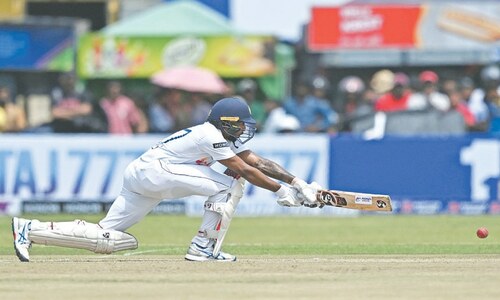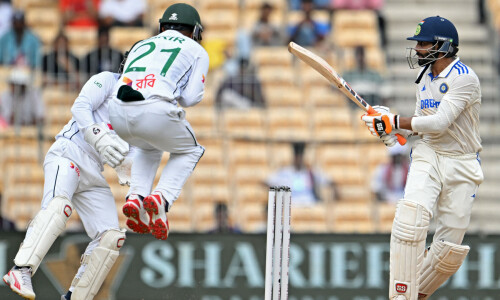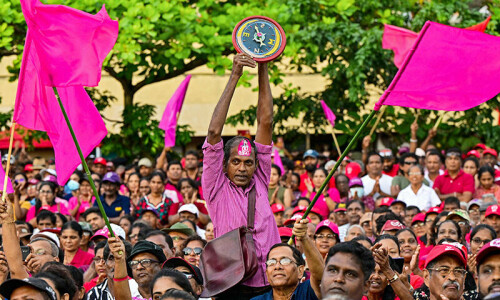LISBON, Jan 5: Dakar Rally chiefs insisted on Saturday that the marathon race, cancelled for the first time in its colourful 30-year history because of terrorist threats, will survive and return in 2009.
But the gruelling event may have to find an alternative finishing point to the Senegalese capital to allow the event to avoid African terror hotspots.
“There will be a great event in 2009. We will start work on it from tomorrow. It could be another Dakar. It’s a little complicated to imagine straightaway what will be the Dakar next year but we will work on it very quickly,” said Etienne Lavigne, the rally director.
The 2008 Dakar Rally had been due to start here on Saturday but the murder of four French tourists in Mauritania on December 24 led to the French government advising against any travel to the country.
Eight of the rally’s stages were due to pass through the northern African country en route south for Dakar and the scheduled finish on January 20.
It was the first time the rally had been cancelled since its creation in 1979.
Rally organisers and competitors were initially defiant saying they were willing to take the risk, but the pressure increased early Friday with French Foreign Minister Bernard Kouchner adding his voice of warning.
“We are warning them -- it is dangerous,” Kouchner said.
“I hope that they have understood, but it’s their business, they are a private organisation.”
Apart from the deaths of the four French tourists there have been concerns that an Al-Qaeda group is active in northern Africa and could target the high-profile race.
The Mauritanian government said the shooting of the French tourists and a separate attack on a military base that left three soldiers dead were isolated incidents and that claims of an Al-Qaeda plot had yet to be substantiated.
Niger, Algeria as well as the north of Mali had already been scrubbed from the race calendar because of security risks.
Now Mauritania has joined the rally’s legion of least-wanted.
If the race is to survive, organisers are expected to examine a route which does not involve crossing deep into Saharan Africa.
“We are working on the hypotheses with sand and without sand,” said Patrice Clerc, the director of the Amaury Sport Organisation (ASO) which oversees the race.
Jean-Louis Schlesser, the winner in 1999 and 2000, believes that a new route might save the event.
“In the future, I believe that the race cannot go to countries which are too ‘hot’,” said Schlesser referring to the security situation.
An alternative finishing point would not be unprecedented. In 2003, the Dakar started in Marseille and ended in the Egyptian resort of Sharm el Sheikh.
But Portuguese organisers were furious at the loss of the event which they estimate could cost them 15 million euros in lost revenue.
Joao Lagos, the head of the Portuguese organising committee, believes that they should have stood up to the terrorist threats.
“There are those who argued that the best method of thwarting, fighting terrorism is to stand up to it ... I totally agree,” Lagos told the daily Diario de Noticias.
“Would similar threats have lead to the cancellation of the Olympic Games or the World Cup?” he asked.
Since its creation in 1979 the controversial Dakar Rally has regularly faced terrorist threats and security concerns and there have been 47 deaths in its 29-year history, including two directly linked to African conflicts.
In 1991, Charles Cabannes, the French driver of a Citroen back-up truck was shot dead in Mali. His killers were never identified but his death appeared to be directly linked to a conflict between the Malian army and Tuareg rebels.
In 1996, French driver Laurent Gueguen was killed when his Mercedes truck was destroyed by a Moroccan army landmine in a zone disputed between Morocco and the Front Polisario rebels between Foum El Hassan and Smara.—AFP
















































Dear visitor, the comments section is undergoing an overhaul and will return soon.